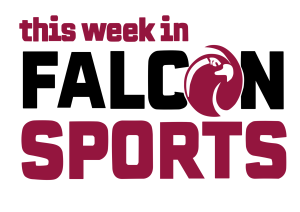Editorial: Stop gutting public transportation
Seattle’s public transportation issues are growing, and not unique
February 12, 2020
It is no secret that commuters wish public transportation needs an overhaul. More investment in light rails, buses and metros are primary ways to alleviate traffic congestion. For proponents, these investments are no-brainers. For opponents, an argument seems to spring from a dead horse: taxes.
Every now and again, an SPU student might comment about wait times between buses, the quality of transportation or the total amount of time spent commuting, and the same negativity can be heard about commuting in a car through Seattle. The density of streets and parking can create traffic jams and bottlenecks throughout the city.
For years, politicians have appealed to the middle class through the attack of taxes. After the Washington State General Elections in November last year, Initiative 976 passed by a margin of 6%, with almost two million voters taking part in the ballot. This initiative capped the price of car tabs at $30, lowering taxes and making registering a car marginally less expensive.
Tim Eyman, who filed the initiative, has developed a career in advocating for anti-tax initiatives in Washington by starting a political action committee called Permanent Offense. Meanwhile, Governor Jay Inslee has directly opposed the initiative, citing Washington’s increase of “urgent transportation needs.”
Ultimately, the initiative will only hurt the public.
According to King County Metro, the tax revenue taken from car tabs helps fund 175,000 hours of service on 74 routes within the City of Seattle, multiple transit projects, special needs transportation funding and more services covered by the Metro.
According to the Metro website, the service could lose up to $20 billion dollars through 2041 as a result of the initiative.
In 2017 alone, King County Metro served over 122 million riders, leading the service to be one of the top ten largest public transportation services in the country by annual ridership. This number shows that public transportation is a necessity for Seattle.
Actors on the national level all also trying to disrupt public transportation development.
In a New York Times article titled “How the Koch Brothers Are Killing Public Transit Projects Around the Country,” author Hiroko Tabuchi examined how local movements, similar to Permanent Offense, are funded by private interests to curtail public transportation projects.
“One of the mainstay companies of Koch Industries, the Kochs’ conglomerate, is a major producer of gasoline and asphalt, and also makes seatbelts, tires and other automotive parts.”
Koch Industries also profits from the production of asphalt, making their source of profit contingent on personal automobile use. For this company, and many like it, it is in their interest to make as many people drive cars as possible.
This motive has the latent effect of boosting carbon emissions in cities, leading to unhealthy smog and aiding climate change. Increasing funding for public transportation allows commuters to spend less time getting to work, lowers carbon footprints and boosts economic productivity within the city.
If a healthier, less congested city is to be developed, public transportation needs to be overhauled without the setbacks of those seeking to sabotage that development.
























































































